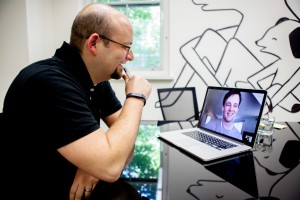For many reasons, the career you have now may not be the best place for you in the future. Facing a career change can be scary when you consider starting over, but they can be necessary for personal growth and fulfillment. If you’re still not sure whether or not you need to rethink the future, here are four signs that it’s time for a change.
You are often tired or bored. If you are constantly tired or bored at the office, it could mean the work is no longer challenging for you. What was hard and rewarding when you first began has become an easy and passive task. This is a pretty good indicator that it’s time to find your passion again and look for a new position, or seek out a similar position that allows for more growth and challenge.
The future doesn’t excite you. When you first started working in your current position, you were probably excited about the work you were doing and where it could take you. If your future at the company no longer excites you or you no longer see a future, finding a new career could be the right move. This may mean you just need to find a different employer, but this could also mean that you need to change industries. Figure out what excites you now and move in that direction.
Your health is suffering. A job that overworks you, is physically demanding or is especially stressful can wreak havoc on your body. Physical and mental stress can weaken your immune system and cause headaches, ulcers and prevent you from concentrating. If a job is putting a physical strain on your body, then it’s definitely time for a change.
You dread going to work. There’s a difference between enjoying your weekend and living for the weekend. There are many reasons you could be dreading work, like you may not like your coworkers or your boss, you dislike the work you do, you don’t agree with the company’s ethics or you may not like the workplace culture. If your work makes you miserable, regardless of the reason, it’s time to move on.
Considering a career change? Brush up your resume and sharpen your Interviewing Skills.





